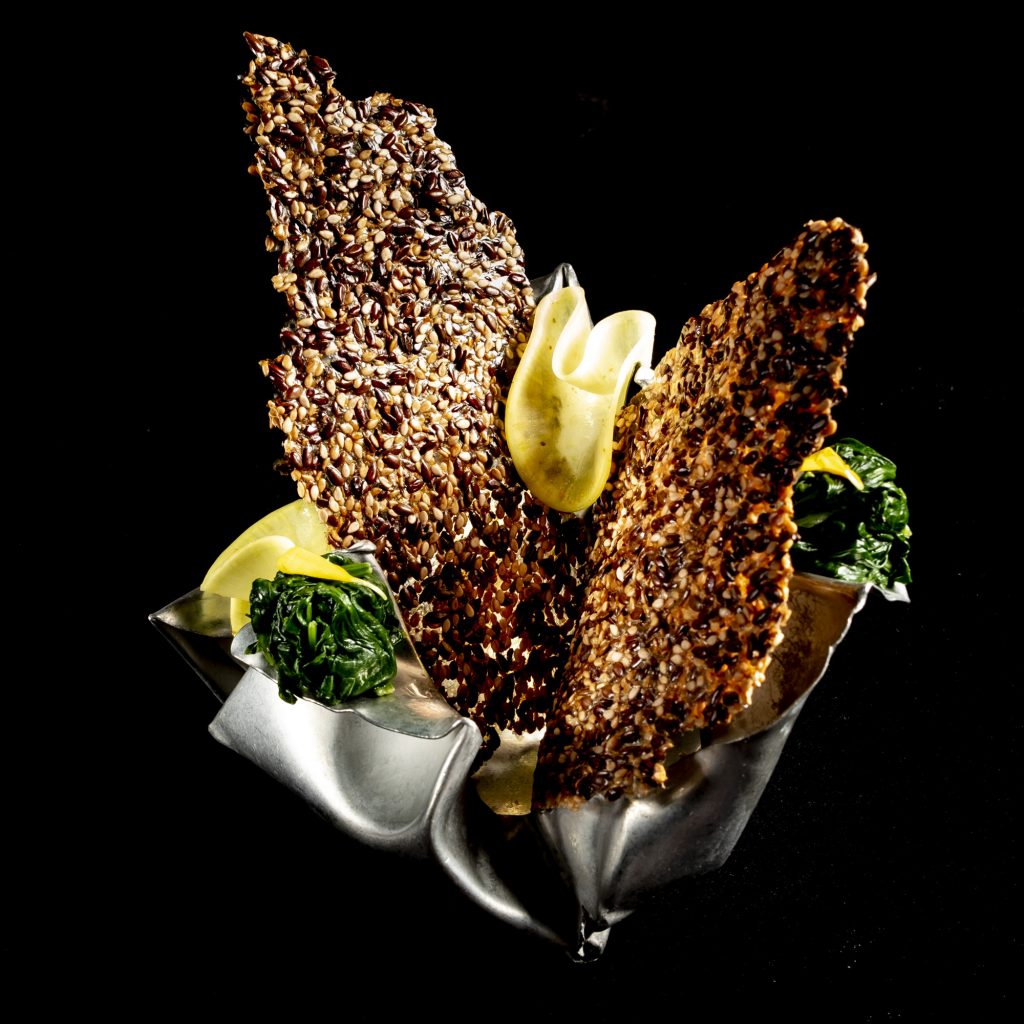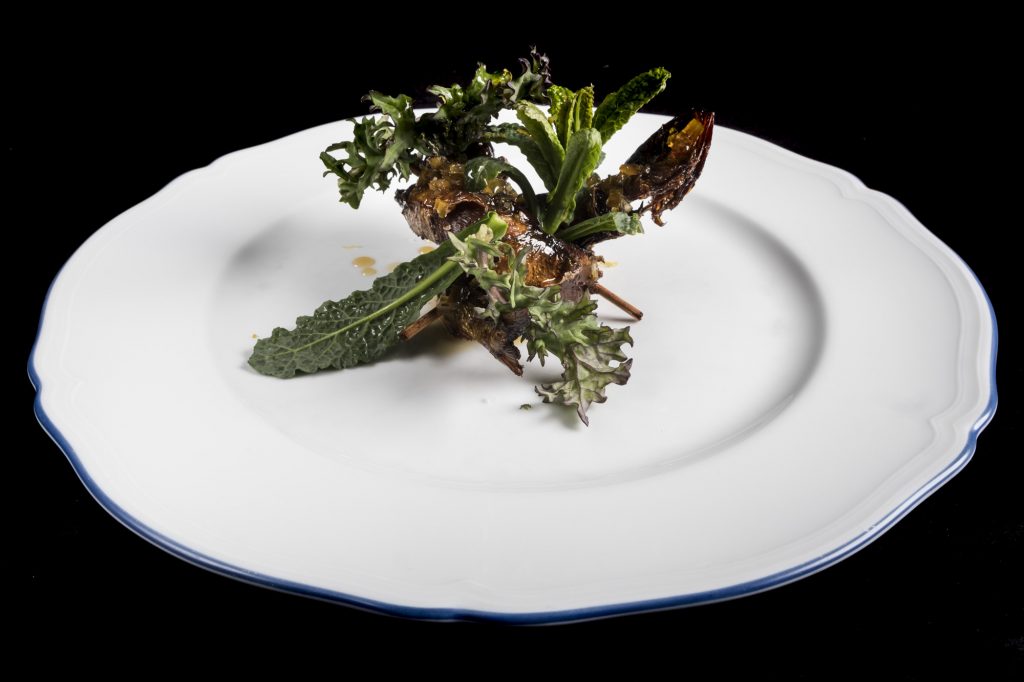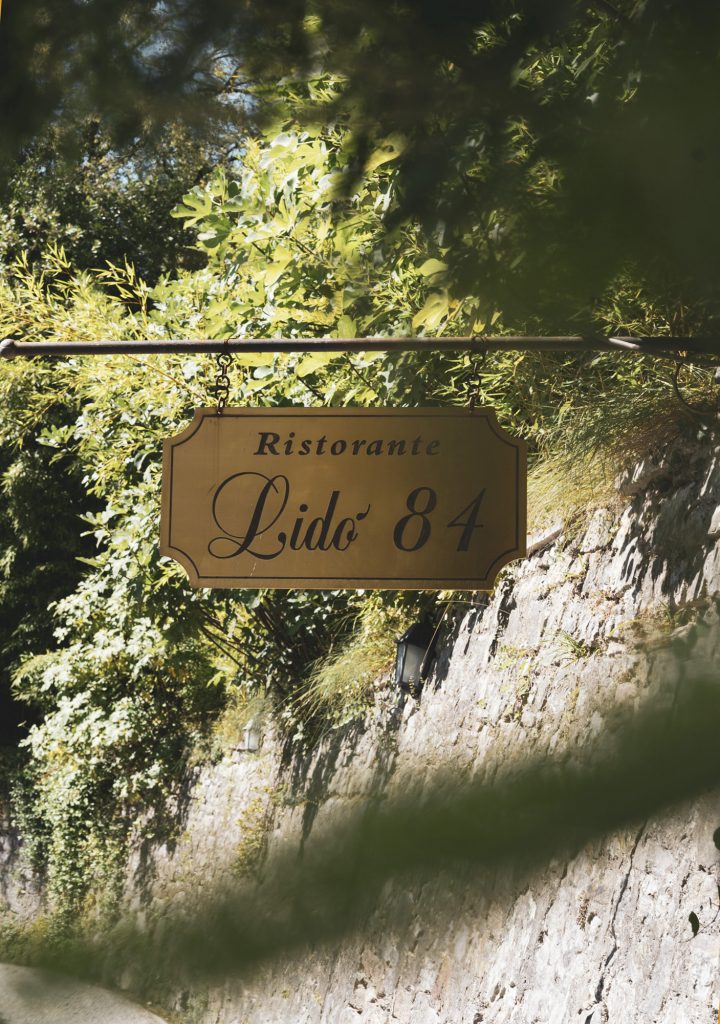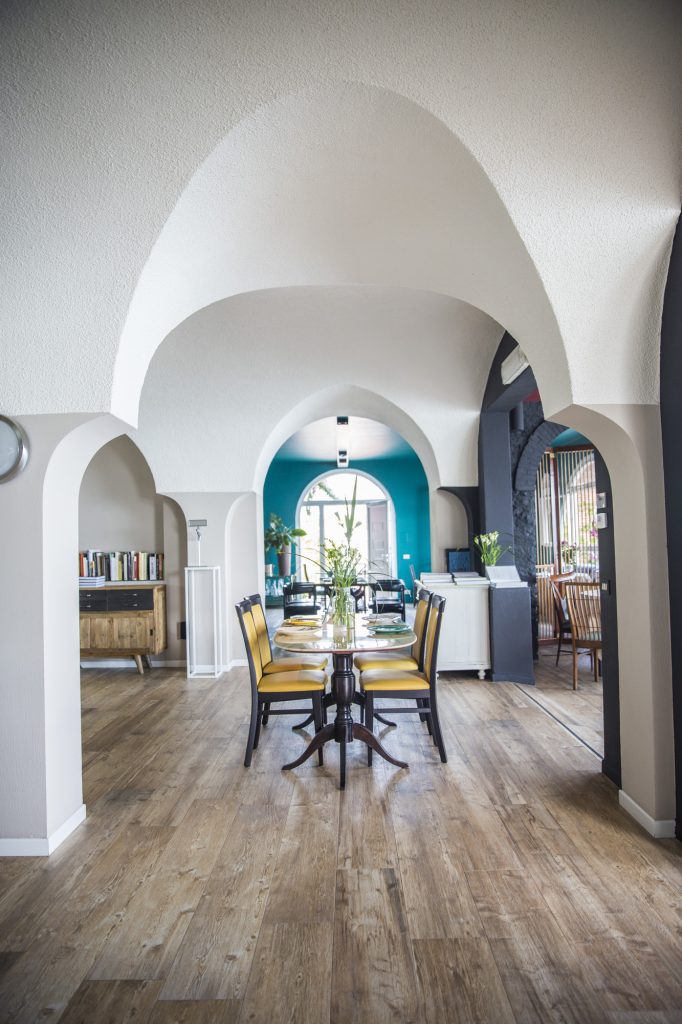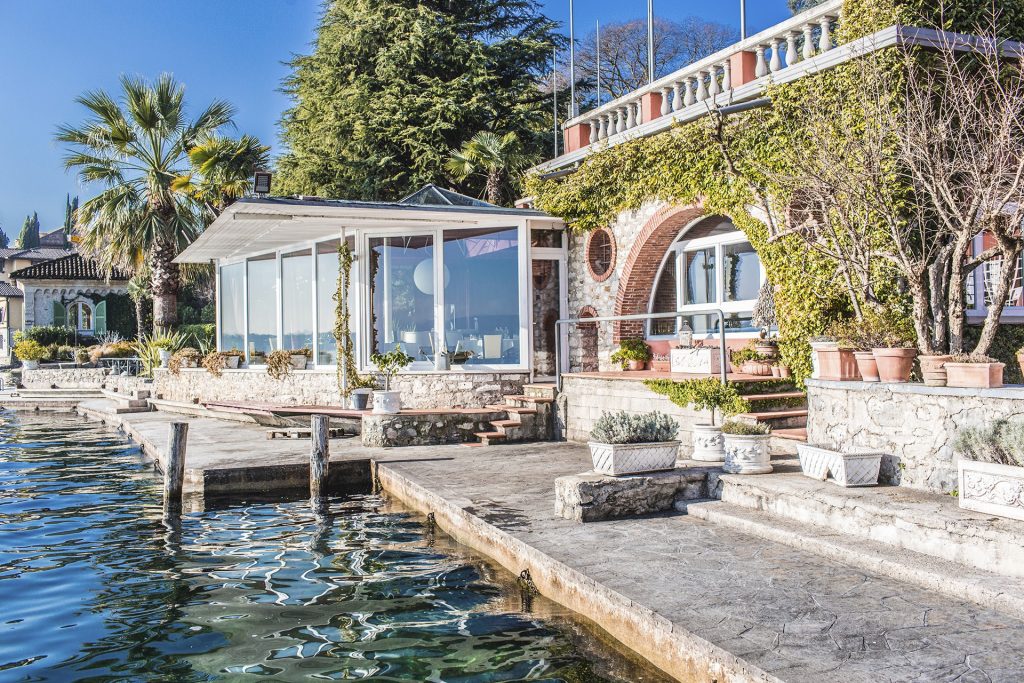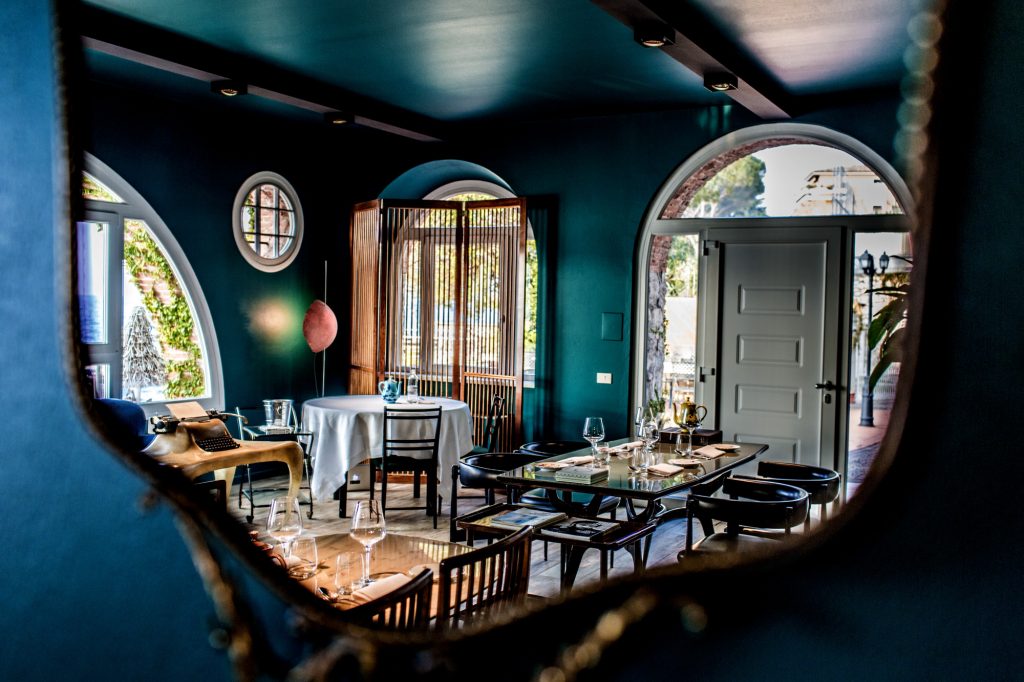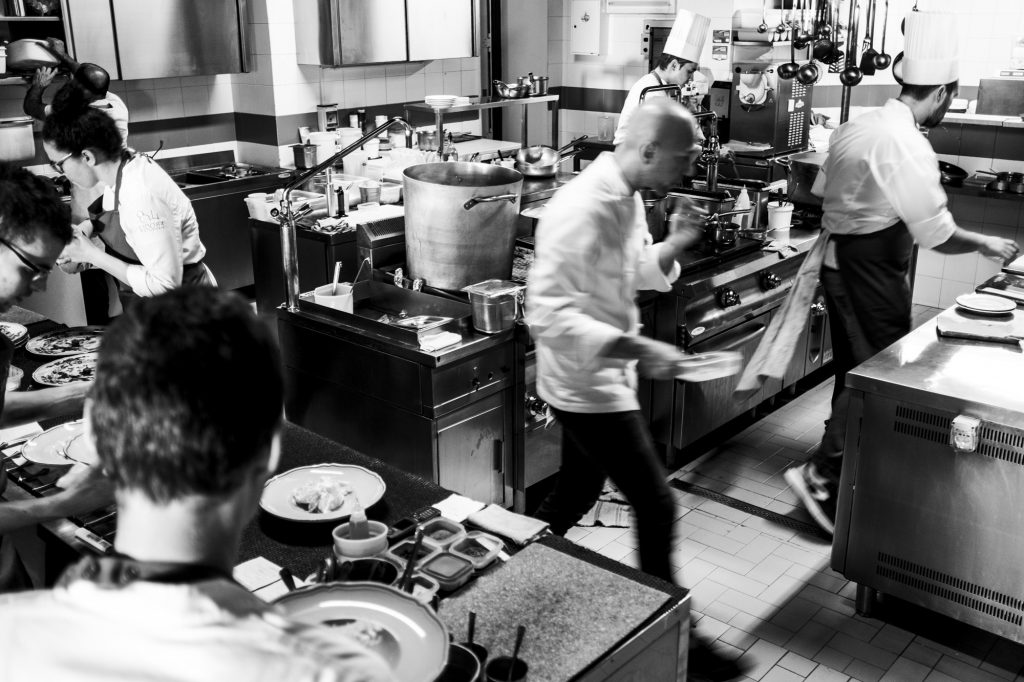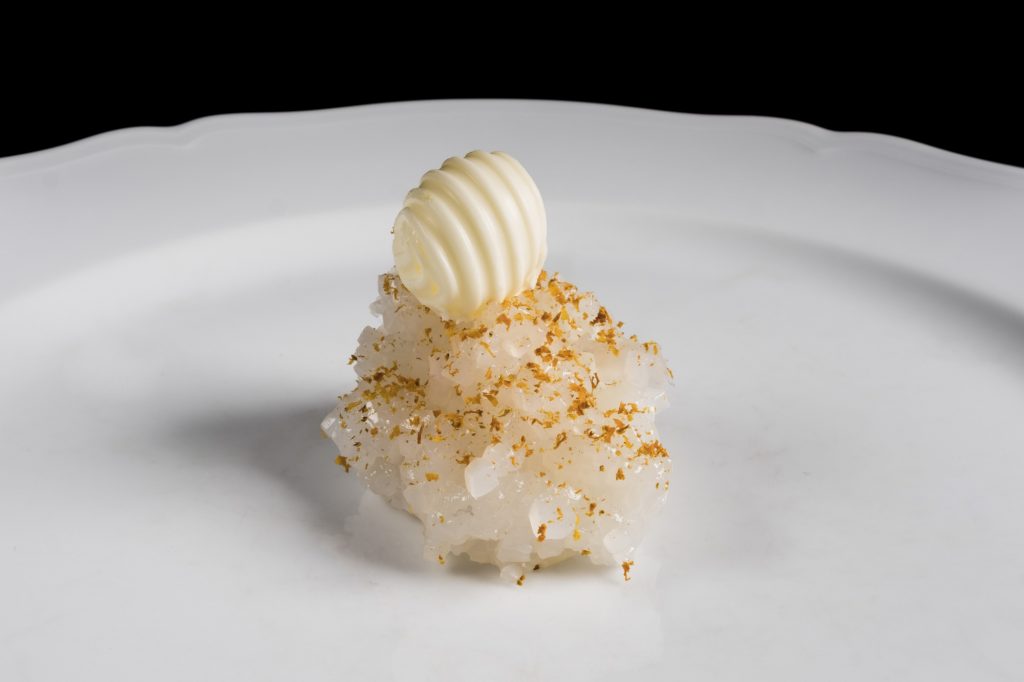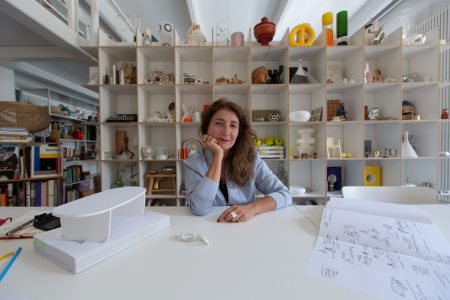Lido 84: The Art of the Table
Humbly but wittily defined by its chef, Riccardo Camanini, Lido 84 provides exactly what one seeks when going to a restaurant: to be refreshed and feel regenerated through superb food and clever dishes.
Humbly but wittily defined by its chef, Riccardo Camanini, Lido 84 provides exactly what one seeks when going to a restaurant: to be refreshed and feel regenerated. The Camanini brothers do this through superb food and clever dishes. They look at the world with empathy while keeping their feet rooted in discipline, aware of the power of taste and with a deep historical understanding and self-consciousness.
TLmag: How is it going in Italy? How are you dealing with the coronavirus situation?
Riccardo Camanini: The virus is very worrying and I think we have yet to see the economic effects it will have on the country. Our friends who work in finance are the most concerned, and small businesses like ours will surely be the most affected. This said, I personally believe that for people who regard entrepreneurship as an inspiring process, rather than a way to accumulate money, this crisis can represent a possibility to generate new strategies and ideas. We live this situation from the standpoint of a small family business and with sensitivity. So far, we have not blocked our investments, and next week, with my team, we will start a new project that shall help set a daily routine. We will see. It is a different experience, but we do not consider it a catastrophe.
TLmag: Let us begin with a basic but fundamental question. Yours is a family story, Lido 84 is a company created by two brothers. How did you start this shared experience?
RC: We have always been very close as brothers, since we were kids. Our relationship grew naturally, based on trust and sharing. At home, we often hosted guests, friends, and held dinners. And you know how these situations work – some people are a bit more suited to certain things than others. For us, everything happened spontaneously: I went into the kitchen and cooked, and I could see that Giancarlo loved the conviviality of being with people very much.
At some point, after working for many years for other people, I began to feel the need for my own place, my own atelier. The call came when I was around 40 years old, at a slightly late age in my profession. The idea was born because we said to ourselves, “we want to open a small, very simple village place,” not imagining that it would attract so much attention. We started in a very familiar way, by investing our lifetime savings. We are children from a working-class background, so there was no help from mom, dad or external partners. We began with four cooks and two waiters – all their first experience in a restaurant. There were no professionals because we could not afford it. Shortly afterwards, to our big surprise, the spotlight was on us. Luckily this sudden interest arrived at an age when, thanks to some maturity, you do not let yourself get fooled by certain dynamics. From the beginning, we were able to manage the company in a very safe and pragmatic way so that, over the years, our investments have been sustainable. We always aimed for a format that was more inspiring in ideas and ideals, rather than at accumulating money through partnerships or other openings. You have to keep in mind that I was 17 when I joined Gualtiero Marchesi and that now I am 47. So, for 30 years, I have been working in kitchens defined by a certain raison d’ être and a well-structured methodology. Personally, my greatest satisfaction in all these years is the pleasure that I get by putting so much of myself into this project. It also causes a lot of turmoil: I like to push and go deeper; I am fascinated by so many experiences and situations; It seems that there is never enough time and that projects never have an end. This also creates a kind of anxiety. Nevertheless, I think it is a very fortunate step in our lives, and we try to treasure it without any urge to follow certain paths or achieve specific results. I was just discussing this with my team. They know they will never hear me saying, “come on, let’s go for another [Michelin] star.” I would rather say: “Let’s develop the bread project further.”
TLmag: Talking about bread, we have a specific question about it! Yours is perfect, and we could not miss this opportunity…
RC: I think you understand it too; Certain souls live more on poetic enthusiasm rather than following the path that, sadly, Italian politics has taught us in the last 30 years. If some social events now surprise us – like the fact that people raid supermarkets and take home enough food for three weeks as a result of Covid-19 – it is because, unfortunately, there is an attitude nurtured over the last 30 years that is uninspiring. Especially with regards to the social thinking of a nation that has so much to express. Italy is such a rich culture; We cannot fail to appreciate all that surrounds us. We live in a place where you turn your head and see a 15th century church right under your eyes. It’s hard not to be touched by it. For us, the situation has become more stimulating every day, and we try to carry on in a very safe, natural and responsible way. We have been working a lot on everything. You should also bear in mind that, for a restaurant, the turnover is a habit and also quite a challenging one. In restaurants, on average, the staff stays around one year: This means that you have to train new people all the time, and this is quite tiring. But our crew is here. They come to work in the afternoon. There is a circle of people who continually come to visit us. The fact of sharing a vision has allowed us to be able to keep 90% of our staff for more than three years. And that is a pleasure, it is worth as much as putting money in your pocket.
TLmag: We understand this very well. Even in our work, building a team is very difficult, particularly a long-lasting team. Today there are so many experiences and places to go – having a stable group of people is important because it guarantees the continuity and quality of the final result. We can imagine that in the restaurant business this condition is even more present. Do you think it is also due to your geographical location?
RC: No, it is due to the nature of cooks who, when they trace the imaginary path of their career, they want to do a couple of years in Italy, one in France to learn the academic techniques, and then maybe move to England to see how creativity works there. It is inherent in the planned path of a cook to move often, change company, see different styles, accumulate experience.
Probably, in our case, we manage to provide our team with a lot of dynamism in terms of roles. Every six months, we change the secondary positions and, once a year, we make changes even in the lead roles so that everyone has to deal with ever-changing challenges. This is probably what anchors the team to a project that they too feel is their own. I also involve them in the economics of running the business. I explain that if we all use the right amount of alcohol to clean a worktop of 180 centimetres, in the end, this practice wins. The fact of defining that the interiors of all the refrigerators must be photographed, or that in the refrigerator the parmesan dedicated to the first courses, must be located on the top right and the parmesan for other purposes in the lower-left corner, may look like manic rules, but they are not. The Academy teaches us that you need a precise methodology to free your brain for other thoughts.
The method is the repetition of the gesture, and the repetition of the gesture is one of the fascinating things when you become aware that there is pleasure in it. It is clear that if you live it as a routine, it means that there is something wrong in the way it has been established. That is why we are always present; We are the first to arrive and the last to leave. Every now and then my team asks me why I even come on days off to help clean up, to turn the washing machines on. I go because I do not want to miss this process of growth. In 4- or 5-years human evolution will be different. I do not want to miss this passage – as a mother breastfeeding her three-month-old son wants to see him and does not want to detach herself from certain processes. I do not know why I go. Do you understand me, guys?
TLmag: Absolutely. And this is probably the reason why you refer to your work as craftsmanship. The difference between craftsmanship and mass production is that the last is associated to repetitive, alienating and meaningless work. Instead, in the repetitive gesture that you talk about stands the personal contribution that becomes part of the work. Do you think that this is the soul of what you do?
RC: I believe that this is essential when talking about the social and anthropological approach to gastronomy in Italy. I cannot speak about what is happening abroad. In Italy, we have the great advantage of having a full spectrum of excellent cuisine; From the grandmother who prepares you tagliatelle al ragù (i.e. tagliatelle with meat sauce) at home, to the big restaurant where you have been going for 30 years. The Italian peninsula has an extremely fortunate geographical position. For us, eating good tomatoes is a natural thing. Other countries have created corporate situations to express their excellence but in Italy, you can have excellence in a single subject. One could say that in Italy there is a lack of cooperativeness or of group thinking. This may be true, but at the same time, everybody recognises Italian dexterity which is so intrinsic to the nature of the country. Italy was dominated by foreign populations until its unification, so it is normal to have so many expressions. The fact that the recipe of a tortellino varies from one place to another, even at only 10 km distance, is not a disadvantage but an advantage. Paul Bocuse, a great chef who is considered as the father of French gastronomy in the twentieth century, said: “When Italy will notice its provinces, it will become the greatest cuisine in the world.”
TLmag: You had formative experiences with Gualtiero Marchesi and Raymond Blanc, among the others. What did you learn from them, and what do you think you learnt by yourself? We are not asking for a list of what you learnt and from whom – we are talking about the things you acquired by doing.
RC: Daily discipline in the approach to work and life. I remember when I joined Gualtiero Marchesi at 17. The first six months were terrible. At the time, it was the only Italian restaurant with three Michelin stars. The kitchen had 25 cooks, which in the 1980s seemed absurd, paradoxical. Who is this chef with such a big kitchen? Everyone was young and came from all over the world; We all learned to speak different languages, particularly French and English. It was a bizarre situation but today it would be very normal.
The academic experience has certainly been very important, and it is still present in my work. The moment one worked for Gualtiero Marchesi, meals tasted differently. If you pay attention, you will see that the academic chefs who came out of Marchesi or Ducasse, or from other great Maisons, perform tastings all in the same way, wear the apron in the same way, use the jacket in the same way. All these are basic principles that are not given up. The Academy is precisely in the iteration, la répétition du geste. I often refer to France because it was the first country to codify academic cuisine. France had a huge advantage: It could afford great chefs because it had a vast empire, great Maisons with exceptional chefs who created academic cuisine. If I see my crew opening the refrigerator without bending their knees, the first thing I do is point it out. They have to preserve their body, otherwise they will get devastated by the job. When you get to forty-years-old, you are wasted. We eat all together, and I decide the diet. I want them to eat light; I want them to be careful. The Academy teaches an inherent approach to nutrition and a particular form of elegance, both of which are essential.
The most difficult thing I’ve had to learn is the ability to sometimes break away from specific processes because it might shut the creative window. Still, I find the academic experience essential. A very beautiful statement by Italo Calvino is: “Fantasy is like jam, it needs to be spread on a solid slice of bread”.
TLmag: Each discipline carries with it many beautiful things and, at the same time, many clichés. You learn to love some of them, but in our case, we realise that trying to overcome some commonplaces that we cannot stand is the only way to keep going. We wondered if this also applies to your work with cuisine, and if so, which are these clichés for you?
RC: What I cannot stand is today’s extreme media exposure. It makes everything pretty much the same. I do not use Facebook, Twitter, Instagram; I have nothing on my devices, mobile phones, iPad. That keeps me more protected. Nowadays, seeing a world that lives on communication, I fear that often very similar ways of thinking will arise. This is another way to turn off creativity. If in the past, creativity within academics was decided by the fact that a reduction had to be done according to a given technique, today the technique is less relevant because it is dictated by what the internet and social media push you to identify as interesting. I fear that today there are professional manifestations that are too superficial – I see it in young people.
Very often, we have cooks, 20-25 years old, who know a lot – even more than me – about what is going on in the world, even about particular techniques. But, as far as we are concerned, gastronomy must create a product designed to enhance one’s dining pleasure. Therefore, you can come up with any weird idea, but if it does not please you, it is not beautiful, and it is not appetising, it is not good. This is what still binds gastronomy to a form of craftsmanship, and not to art, as art has no limits. But that is not a limit and is not to be seen as a subculture.
TLmag: As designers, we are often asked if we have any favourite materials. Of course, it is easy to have preferences or tendencies, but we think it is wrong to have favourite materials. Every material, or every ingredient if we go back to the Lido 84 kitchen, has its own dignity. It is up to the designer, or to the chef, to know how to enhance it. We wondered if you have ingredients that you have learnt to love particularly over time, or that have even changed the way you cook.
RC: Excellence always leads you to love them. I understood this through the approach to vegetables we have had over the last few years. If someone with a vibrant sensitivity picks up a cauliflower, he picks it up when he thinks it has the right sweetness. Recently I have been working with a Florentine perfumer customising spices. We have been working on a project for six months, and I still understand very little. This made me realise that I have been working with nutmeg for thirty years without having a clue about it. Do you understand? It might happen only once in a lifetime to meet a person that is so sensitive that she/he makes you understand subtle nuances. Lately, given the time I have now, I have been exploring essential oils, spirits as well as spices, and different kinds of honey with the perfumer. And, really, the perception is enhanced even more by knowing the story behind it all, the place, the reason why, what the ingredient is made of, its culture and history.
TLmag: One thing that has impressed us a lot is the quality of the bread in your restaurant. We are interested in bread for various reasons. For its simplicity, which makes it also very difficult to master, and also for its symbolic meaning. In our experience, it is not rare that even in Michelin-starred restaurants, bread is a bit neglected. Yours, instead, seemed to have the quality of a bakery rather than a restaurant. Why is that?
RC: Fermentation is a thing that fascinates many cooks, and bread is about fermentation. It is an extremely complex process, and it becomes more complex the more natural the flour is. The complexity is determined by totally different factors – the humidity, the place where you are, the flour interacting, the hand of the cook, the way of folding the dough, the temperature and a thousand other factors. Every day you can see beautiful shades in the bread which are based on small changes that you made, and whose results can always be seen about 36 hours away from the beginning of the process. 36 hours is a pretty long process – it keeps you strongly tied to it. Personally, I love bread. If I had to decide what to eat tonight, I would choose a plate of pasta, oil, parmesan and bread. Pastry-making has the same effect on me. It appeals to my sweet tooth, and therefore it inspires me a lot.
TLmag: You would not believe how many times your Torta di Rose (i.e. rose cake) is mentioned every week at our place. We love it because it tastes like it is from a bakery.
RC: Precisely, from a bakery. When you walk into a bakery, what you would like to take home, to treasure, is the scent – that slight heat wave that comes from the oven. It is pure poetry.
TLmag: Another thing we wanted to talk about is your approach to layering: river fish and sea fish, different types of meat, etc. When we work with two tones of the same colour, for example, it is because this helps to understand its depth, to highlights its subtleties, the differences. Is it the same for you, or where does this [interest] come from?
RC: It comes from my love for food. I was thinking of a steak tartare for the restaurant, and I realised that when I struggle to conceive an idea, I say to myself: “Fuck it, how would I love to eat this?” My gluttony takes over as if I were at home free from any kind of conditioning. I remember that this dish determined many other choices. It was a well-crafted Piedmont Fassona beef tartare, which I paired with a rabbit kidney, twice-baked the same way of a roasted rabbit in the oven. In the end, you find the kidney a bit stuck inside the baking pan, blood-red inside but almost as crispy as a biscuit, extremely ferrous, very textural and pleasant. So, I thought that a small heart that tastes like roast inside an extremely fine steak tartare would be special. From there, the simplest thing was to season it not just with fresh, extra virgin olive oil, but with an extra virgin olive oil flavoured with the roasted rabbit and rosemary. My taste buds were staggered. The exciting part was the layering of meat on meat, which then applied to fish on fish. I used it in different forms, and I am very intrigued because I find the tone on tone more exciting, and a more interesting challenge for a cook than working on the classic contrasts: crisp vs soft, sour vs sweet. The tone on tone is more complicated, and it becomes more stimulating.
TLmag: One last question: What is your relationship to sustainability in your kitchen at Lido 84?
RC: I have to be very critical on this issue as far as it concerns my kitchen. What we are doing is not enough, and we acknowledge that. It is not so easy because nowadays the most difficult barrier is our habits. I find it to be one of the greatest mistakes of human being, the greatest danger, that of constantly repeating the same action just because it allows you to be faster and not to think, not to devote time to research. It gets on my nerves. Because today we have understood and perceived that nature is sending us very clear messages. Today, the most responsible approach we can have is that of understanding and listening because it is the only way to develop a concept.
